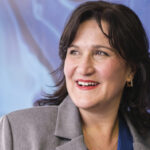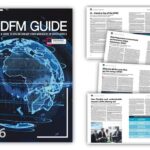Most financial advisors in South Africa currently only use one discretionary fund manager (DFM), but some bigger practices have diversified their clients’ investments to benefit from expertise at different DFMs.
Pat Magadla, head of distribution at Equilibrium, says advisors typically only have one DFM, but some may use one for local portfolios and one for offshore.
If advisors want to streamline investment outcomes across their client base, then using more than one DFM doesn’t make sense, Leigh Kohler, head of DFM at INN8 Invest, says. However, should an advisor want to use DFMs for different client needs – for example, using one DFM for growth in savings and pre-retirement needs and another for post-retirement (living annuity) needs, then using two different DFMs could make sense.
This holds for managing global investments as well. Some DFMs don’t have the capability, capacity, skill and experience to manage offshore solutions – in this case it could make sense for an advisor to have a DFM to run global assets separate to the local assets.
But Kohler’s view is that advisors should look for a DFM that has the ability to run local and global portfolios as there are DFMs who are able to do this.
Income expertise
George Dell, executive director of MitonOptimal, says it is not uncommon for financial advisory practices to use more than one DFM where a DFM is particularly skilled in an area, such as offshore investments. Dell is aware of a large advisory practice that uses MitonOptimal for its clients’ income portfolios and a competing DFM to manage the pre-retirement portfolios.
Kohler does not think it is wise to use more than one DFM to compare their services. Rather, an advisor should avoid the common mistake of not doing a proper upfront due diligence on the DFM before deciding which one to use as not all DFMs are built the same, he says.
Barry O’Mahony, independent financial planner and founder of Veritas Wealth, says decisions about whether to use one or more DFM should depend on the DFM’s capabilities.
Some DFMs operate with a dual focus, both local and offshore, which allows advisors to use one DFM for both local and global portfolios.
O’Mahony isn’t unhappy with Veritas’ current DFM, but believes it is worthwhile checking what is in the market from time to time. Veritas therefore plans to review its decision to appoint their DFM and confirm that they made the right decision, he says.
Dell encourages advisors to consider several DFMs as part of a thorough due diligence process, as this reassures clients that their advisor has carefully evaluated options and chosen the best fit, while also strengthening compliance with a documented assessment.
Investors will always want to know that their advisor has considered the services that are on offer and made a good choice, he adds.












